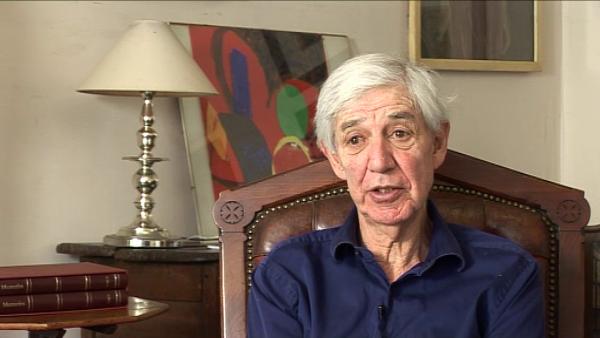Changing from soil mechanics to cell mechanics was really a very big change in my life, and I had to learn biology. I... you know, I was going back to lectures again at the age of what, something like 25 or something like that. But the trouble with soil mechanics is that it wasn’t very sexy. If you were taking out a lady, or you were pursuing a lady, and you said you were a soil mechanic, it didn’t exactly turn them on. I must say saying that you were a cell mechanic didn’t turn them on either, but the fact that you were in biology... it was a completely different group of people. And the people that I was involved with in doing my cell mechanics were really much more interesting than the people that I was involved with doing soil mechanics. When... when we did this work, we were in... when I was doing my PhD, we were in the basement of King’s College and we shared this little lab and there were four of us who’ve remained... who’ve remained — all of us now professors — who’ve remained very good friends over the last 55... the last 55 years. Who were they? So the four of us, there was Wilfred Stein, who was the one who got me into biology in the first place, Geoffrey Burnstock, who’s one of the most quoted authors in the... in the whole of biology and who discovered purinergic nerves, then there was Eric Barnard, who’s a distinguished... molecular biologist. He’s in neuro, isn’t he? Yes. And so... and we had... we had a very enjoyable time in those... in those early days in the basement of... in the basement of King’s College. It was just the intellectual problems. And you see it is for me... I still feel very strongly, and I try to tell people, that if we look at... that I came — and you too — came from a single cell, the fertilized egg. I still... I try to persuade people when I give lectures, that every night before you go to sleep you should say to yourself: ‘I came from a single cell, the fertilized egg’. Isn’t that absolutely amazing? And we ought to try and understand it. So when I went into developmental biology and cell biology, I really was, from the very beginning, very excited about that. And it still is to my mind, absolutely amazing that that little cell can give rise to all these human beings.






